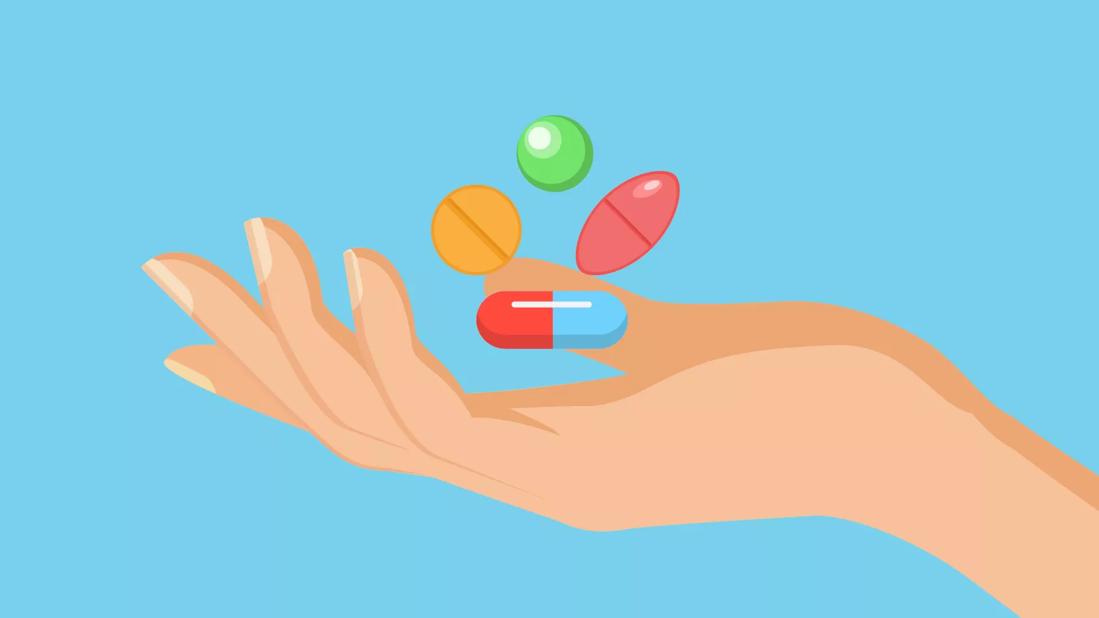Most birth control methods are already out of your system in a few days

Image content: This image is available to view online.
View image online (https://assets.clevelandclinic.org/transform/4247c15a-5670-4cf7-bda7-2471555e4f5d/BirthControlCleanse-950522566-770x533-1_jpg)
An illustration of a person's hand holding pills of different shapes and colors
The idea of hitting a reset button for your body and your fertility after getting off birth control may be tempting. But is it realistic? Or necessary? Ob/Gyn Ashley Brant, DO, sets the record straight on birth control cleanses.
Advertisement
Cleveland Clinic is a non-profit academic medical center. Advertising on our site helps support our mission. We do not endorse non-Cleveland Clinic products or services. Policy
Birth control cleanses are products — most often drinks — sold with the premise that your hormones should be rebalanced and your uterus detoxed after getting off birth control. They often include vitamins, minerals and herbal supplements like chasteberry.
“Most birth control cleanses are like a multivitamin. But they’re not approved or regulated by the U.S. Food and Drug Administration,” Dr. Brant says.
Manufacturers claim the types of birth control methods that release synthetic hormones into your body (we’re looking at you, pill) upset your body’s natural state. They claim they wreak havoc on your:
“Most birth control methods are completely out of your system within a few days,” says Dr. Brant. “That’s why you take birth control pills every day — they wear off within 36 hours. There’s no harmful buildup of hormones in your system.”
The effects of an intrauterine device (IUD) last slightly longer. “But even the most conservative estimates say your body is clear of synthetic hormones within a week of having the IUD removed,” Dr. Brant explains.
The one exception? The Depo-Provera® shot, a progestin-only contraceptive injection you get every three months. Progestin is the synthetic version of progesterone, a hormone your ovaries naturally release.
Advertisement
“While the injection’s effects are intended to last for at least three months, there’s some evidence that it can take up to a year for fertility to return after your last shot,” Dr. Brant says, “but there’s no evidence that taking vitamins or supplements speeds up that process.”
In short, no. “A cleanse is not necessary after birth control. There’s no evidence that taking vitamins helps you more quickly process the hormones in birth control. Your liver quickly processes most reproductive hormones, such as progesterone and estrogen, on its own,” Dr. Brant explains.
While you don’t need to do one, Dr. Brant says there’s probably no harm in birth control cleanses. “There have, however, been a few case studies where people have overdosed on over-the-counter vitamins, so buyer beware of that potential risk,” she warns. “The quality of vitamins and supplements can also vary from product to product.”
Another potential birth control cleanse side effect has to do with your bottom line.
“They’re a marketing gimmick. Manufacturers prey on people’s fears and concerns about hormones so you’ll buy these expensive products,” she says. “Taking a prenatal vitamin would be a lot cheaper for similar potential benefits.”
The term “post-oral contraceptive syndrome” was first coined in 2008 in a book written by a doctor/herbalist. Now known as post-birth control syndrome, naturopathic doctors describe it as a set of symptoms that may happen after you stop taking birth control pills. These symptoms can include:
But here’s the catch: “Post-birth control syndrome is not a medically accepted term. It’s not well defined and doesn’t have diagnostic criteria in the medical field,” Dr. Brant says. “Birth control often treats and prevents these troublesome symptoms — so, it’s more likely that birth control had been masking these problems when you were on the pill, not that going off of birth control caused them.”
It’s also important to note that the idea that birth control negatively affects future fertility is more superstition than science. In fact, studies show that it doesn’t affect your ability to conceive after you stop using it.
But if you just don’t feel right after getting off birth control, Dr. Brant says self-treating with a cleanse isn’t your best option. “Instead, talk to your doctor,” she advises. “It’s rare for ovulation to take a while to come back. Most people will start ovulating again within one to two months. But if not, there are things we can do to help get you back on track.”
Advertisement

Sign up for our Health Essentials emails for expert guidance on nutrition, fitness, sleep, skin care and more.
Learn more about our editorial process.
Advertisement
Certain seizure medications, HIV treatments, antibiotics or herbal supplements can make your oral contraception less effective
Some birth control can hide perimenopausal symptoms
Here’s what experts say about how the two are related
There are many highly effective pregnancy prevention methods to choose from
Here’s what you should do next
Birth control can help you in ways you didn’t expect
The short answer from an Ob/Gyn
The short answer from an Ob/Gyn
Type 2 diabetes isn’t inevitable with these dietary changes
Applying a hot or cold compress can help with pain
Pump up your iron intake with foods like tuna, tofu and turkey